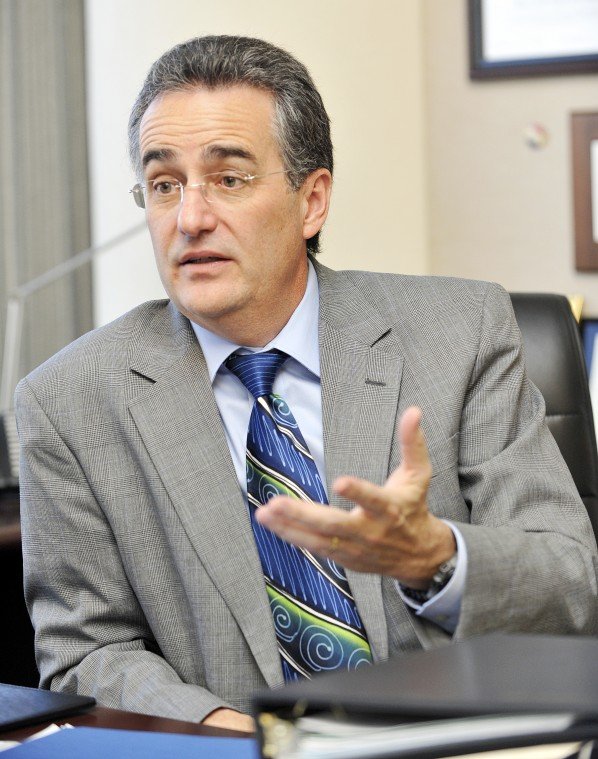A petition designed to put the heat on county supervisors who recently voted in favor of new policy recommendations that affect South County vintners has amassed hundreds of signatures and comments in a matter of days.
The effort follows a year-long process aimed at bolstering agritourism, enhancing the viability of wineries and clarifying existing laws that regulate the wine industry – an endeavor that’s blown the cork on long-fermenting tension between winery owners and county officials.
The subject has even more cognizance now, thanks to an emerging third party voice: The public.
More than 500 supporters of small wineries, entrepreneurship, music and community events have signed the online petition, many leaving detailed comments asking the Santa Clara County Board of Supervisors to “revise the recent restrictions imposed on wineries for events.”
“The wineries can help bring communities together and provide a venue for local entertainers,” wrote Craig Lore of San Martin, who signed the petition. “In this economy we should strive to encourage small business owners and work towards giving them the best possible chance to survive.”
The petition has also caught the attention of District 1 Supervisor Mike Wasserman, who plans to attend Morgan Hill’s regular “coffee with the mayor” from 10 to 11:30 a.m. Saturday for a “discussion of local issues.”
The petition is the latest byproduct of an ongoing endeavor that was initiated by Wasserman to address county policies that regulate the 22 Santa Clara County wineries. Most recently on Aug. 21, the Board of Supervisors voted 4-1 to accept the Planning Department’s policy recommendations regarding county winery regulations. Several recommendations related to the small gathering allowance, outdoor amplified music and industry/marketing events rankled many winery owners.
Morgan Hill resident Beth Adames, who authored the petition, writes that “new regulations put on wineries regarding event size and amplified music have resulted in the cancellation of many events scheduled at the smaller wineries,” such as regular weekend concerts recently curtailed by the winemakers at Sarah’s Vineyard on Hecker Pass and Jason-Stephens Winery on Watsonville Road.
Wasserman has rebutted and clarified several of the grievances stated in the petition; reminding that the proposed regulation changes voted on by the County Board of Supervisors aren’t cemented yet.
“I’m still taking into consideration additional input from all stakeholders, and will continue to do so until the final vote is taken,” he wrote via email, in response to the petition.
While the petition scrapes the surface of a lengthy, convoluted issue complicated by varying viewpoints, impassioned opinions and the sheer volume of information, hundreds of petition comments reflect a united front from those who support wineries and their entertainment offerings.
Vintner Jason Goelz of Jason-Stephens Winery calls the petition a “great, easy approach” that allows the Board of Supervisors to grasp the scope of “how many residents, probably the majority, feel about musical events at wineries as opposed to a handful or two who are against these events.”
Signatures have trickled in from South County, the greater Bay Area, Watsonville, Santa Cruz, Salinas, Palo Alto, Washington state, New York and the Garlic Capital, where supporters express their support for “wholesome” community events, “which provide revenue for wineries, bands and waitstaff,” wrote Court Stannard from Gilroy.
“I would rather support my county than Napa Valley,” wrote Margaret McGeachy of San Jose.
Comments hail from musicians, to winery regulars, to local Gilroy entrepreneurs including Nimble Thimble owner Dave Peoples, who enjoys “the events at the wineries and believe that they provide a valuable asset to the economy of the county and South Valley.”
If the “wonderful events” at wineries start to disappear, “I highly doubt I will remain a resident of Morgan Hill,” wrote local Lori Stoutenburg.
Many expressed their preference to attend a winery event versus patronize a club or bar, while others, such as Martin Spicer of San Jose, is worried that “people will lose their jobs and pay check (directly and indirectly) because of the Boards’ actions.”
“I live practically across the street and none of the local wineries are a problem. They are a benefit!” wrote Steve Sturken of Morgan Hill.
Morgan Hill resident Dan Russo asks the county to “let our small wineries grow and get the government out of the way.”
That’s essentially what the county is trying to do, Wasserman reasons.
“Each proposed change is an improvement (in terms of clarity and/or cost) over the current laws,” he wrote.
To put things in layman’s terms – as Lightheart Cellars owner Sheldon Haynie of San Martin points out – good intentions on Wasserman’s part may be leading to some unintended consequences.
While the permitting process in relation to winery events should be less costly from now on, according to Wasserman, pursuing a permit still isn’t necessarily worth the final price tag it takes to be code-compliant in the long run, Haynie noted.
“Why should I spend the money and take the risk … when the county is more sensitized to enforcing things?” he said, adding that Lightheart might not offer live music or appetizers come this fall’s Passport Weekend. Visitors travel from all over to taste wine, munch on tapas, meet the winemakers and listen to music at various South County wineries during this biannual extravaganza.
On the flipside, Haynie applauded Wasserman’s intentions and acknowledged the county has an obligation to respond to all constituents, such as those who have complained about noise.
“People want to have a good time, and people who live near wineries want their peace and quiet. How do you arbitrate that? That’s a hard one,” said Haynie.
He echoes a point repeatedly hammered on by Wasserman, who returns to the fact that current rules technically require winery owners to have a costly “use permit” ($14,732) to host any sort of commercial, industry or marketing event, be it a small, medium or large gathering. Many of the existing regulations are vague or unenforced.
“A lot of the people assume that wineries had permission to do what they were doing,” Haynie explained. “The county was not necessarily enforcing some of those rules. I think it’s fair to say that the county is doing what they’re supposed to do.”
In response to the petition, Haynie called the outpour of responses “heartening.”
“I certainly appreciate the support. It’s nice to know the community values us,” he said.
Goelz, similarly, wanted to “thank the community for supporting the local wineries and agricultural tourism.”
Some of the key changes implemented during the Aug. 21 meeting
Small gathering allowance: The Board of Supervisors voted to allow up to 50 people “by right” (without having to obtain a permit) for small gatherings. Gatherings with 51 to 100 people on lots 5 acres or larger, however, are subject to additional requirements and reviews related to access, parking, Department of Environmental Health and Fire Marshall Office criteria. Winery owners, on the other hand, say gathering allowances should be size-proportionate to winery acreage.
Outdoor amplified music: The Board of Supervisors will now require wineries to have a “discretionary review” in order to have “outdoor amplified sound associated with winery events and winery activities.” This may result in the winery having to obtain a special permit ($2,133) or use permit ($14,732), “depending on the scale, or frequency of events,” according to the county. There is an exception for limited background music. The WWG wants to abide by the existing county decibel limitations.
Industry/marketing events (such as Passport Weekend, barrel tasting): The Board of Supervisors voted to allow up to 12 medium events (between 50 to 250 people) annually via special permit ($2,133). The WWG asked for industry/marketing events to be allowed without limitation on attendance size or frequency.













